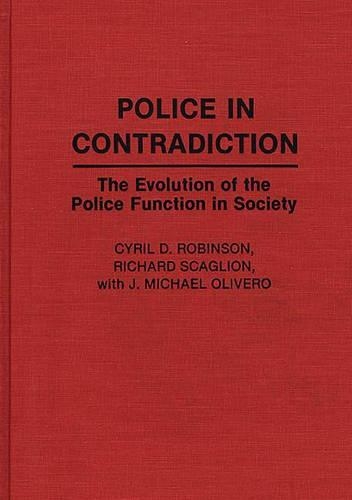
Police in Contradiction: The Evolution of the Police Function in Society
(Hardback)
Publishing Details
Police in Contradiction: The Evolution of the Police Function in Society
By (Author) J M Olivero
By (author) Cyril Robinson
By (author) Richard Scaglion
Bloomsbury Publishing PLC
Praeger Publishers Inc
30th December 1993
United States
Classifications
Tertiary Education
Non Fiction
363.209
Physical Properties
Hardback
216
Description
This book formulates a theory of the origin and evolution of the police function, using both historical and cross-cultural analysis. It explains the incremental changes in the police function associated with the transition from kinship-based to class-dominated societies, and examines the implications of these changes for modern police-community relations. It suggests that the police institution has a double and contradictory function: at the same time, and in the same society, it seeks to be the agent of the people it polices and of the dominant class. The authors critique community policing and suggest how communities may be reconstituted in order to create a community police. A comprehensive bibliography enhances this study for students, teachers, and professionals in the fields of criminal justice and sociology.
Author Bio
CYRIL D. ROBINSON, Professor Emeritus, Center for the Study of Crime, Delinquency, and Corrections at Southern Illinois University at Carbondale, has long specialized in criminal law and police-community relations. His most recent book is Legal Rights, Duties and Liabilities of Criminal Justice Personnel: History and Analysis (1992). RICHARD SCAGLION is Associate Professor in Anthropology at the University of Pittsburgh. He specializes in tribal societies. He is the editor of Customary Law and Legal Development in Papua, New Guinea (Journal of Anthropology, volume 6, nos. 1 and 2, 1987) and author of numerous articles on travel societies, customary law, and police-community relations. J. MICHAEL OLIVERO is Associate Professor and Chairman of the Department of Law and Justice at Central Washington University in Ellensburg. His most recent book is Honor, Violence, and Upward Mobility: Chicago Gangs, 1970s-1980s (1992).
